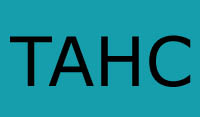|

|
 |
New Regulation Intended to Protect Horses
Horse enthusiasts with limited area on which to keep their animals can now be assured that nearby horses have tested negative for Equine Infectious Anemia (EIA). EIA, also referred to as "Coggins" or "Swamp Fever," is an incurable disease that can be carried by biting flies from infected equids (horses, mules, donkeys or asses) to "clean" animals. While most infected animals appear healthy, some may die from the virus. Other equids will develop chronic, recurring health problems, such as debilitating weight loss, fever, depression, weakness and swelling of the legs. There is no cure or approved vaccine for EIA, and treatment is limited to providing comfort to the sick animal. To combat the spread of EIA, the Texas Animal Health Commission (TAHC), the state's livestock health regulatory authority,in response to citizen petitions, enacted a new regulation April 1, 2002, that requires equids to have had a negative blood test for EIA within the previous 12 months, if the animals are boarded, stabled or pastured within 200 yards of equids owned by another person. "Concerned owners approached the TAHC commissioners several months ago with a petition, asking for this new regulation," commented Dr. Linda Logan, Texas' state veterinarian and TAHC executive director. "Because many horse owners in Texas have small plots of land, they wanted to be assured that their animals would not be near potentially infected equids." Dr. Logan stressed that although EIA-infected equids do not spread the disease through close contact, biting flies can mechanically carry viral-laden blood from one animal to another. EIA does not affect humans or animals other than equids, she explained. "Owners may call the TAHC headquarters or their TAHC area office, to request assistance with this regulation," said Dr. Logan. "A TAHC representative will first ensure that the complainant's animals have up-to-date EIA test documents. Then, TAHC staff will canvass neighboring premises to gain compliance with the testing requirements." Dr. Logan said the TAHC has worked to control EIA for many years and Texas has had a dramatic decline in the viral infection since l997, when more than 730 equids tested positive in Texas. Of the 250,000 equids tested in Texas in 2001, only 124 were infected, a drop which Dr. Logan credits to owner concern, more stringent testing requirements and a growing awareness of EIA.
Current TAHC regulations require equids to be test-negative for EIA within the previous 12 months, if they are hauled to assemblies, such as fairs, shows, exhibitions, rodeos or trail rides. The 12-month EIA test rule also applies to equidae undergoing a change of ownership or entering the state. EIA-positive equine are permanently identified with a "74A" on their left shoulder and must either be euthanized, sold to slaughter or provided to an approved research facility, or remain quarantined for life, at least 200 yards from other equidae. |
| Back to News |
BENEVOLENCE | BENEFITS | GROOM ELITE | PERSONNEL | LINKS | CONTACT US
